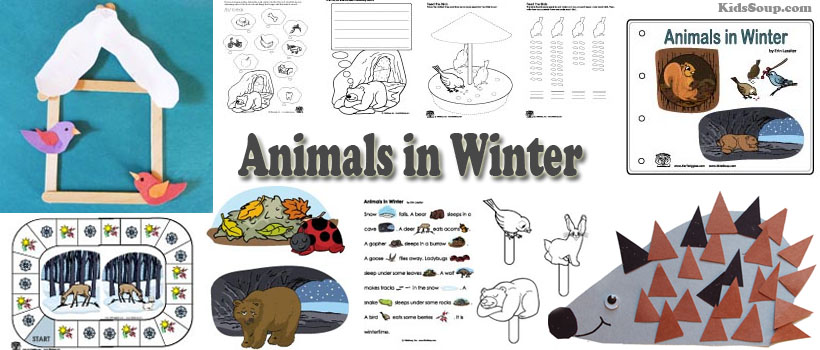Turtles of Virginia
- Turtles remain a part of the traditional diet on the island of Grand Cayman, so much so that when wild stocks became depleted, a turtle farm was established specifically to raise sea turtles for their meat. The farm releases some turtles to the wild to help repopulate the Caribbean Sea.
- Turtle, (order Testudines), any reptile with a body encased in a bony shell, including tortoises. Although numerous animals, from invertebrates to mammals, have evolved shells, none has an architecture like that of turtles. The turtle shell has a top (carapace) and a bottom (plastron).
Turtles Band
Anderson Animal Shelters provides care for homeless pets, offers humane education programs and provides dog training. Tortoises are landlubbers, with feet that look a little elephant-like. Water-loving turtles tend to have flipper-feet to help them swim. While tortoises and turtles enjoy many of the same things, their diets and habitats aren’t interchangeable. Even within their own groups, turtles and tortoises come in a lot of different varieties.
Virginia Turtle Identification Guide | Virginia Turtle Measurements | Turtles: Dos and Don'ts

Sea Turtles
Virginia Wildlife Action Plan Rating Tier IV - Moderate Conservation Need - The species may be rare in parts of its range, particularly on the periphery. Populations of these species have demonstrated a significant declining trend or one is suspected which, if continued, is likely to qualify this species for a higher tier in the foreseeable future. Long-term planning is necessary to stabilize or increase populations.
Virginia Wildlife Action Plan Rating Tier III - High Conservation Need - Extinction or extirpation is possible. Populations of these species are in decline or have declined to low levels or are in a restricted range. Management action is needed to stabilize or increase populations.
Virginia Wildlife Action Plan Rating Tier II - Very High Conservation Need - Has a high risk of extinction or extirpation. Populations of these species are at very low levels, facing real threat(s), or occur within a very limited distribution. Immediate management is needed for stabilization and recovery.

Virginia Wildlife Action Plan Rating Tier I - Critical Conservation Need - Faces an extremely high risk of extinction or extirpation. Populations of these species are at critically low levels, facing immediate threat(s), or occur within an extremely limited range. Intense and immediate management action is needed.
I Like Turtles
Conservation Opportunity Rankings:
a - On the ground management strategies/actions exist and can be feasibly implemented.
b - On the actions or research needs have been identified but cannot feasibly be implemented at this time.
c - No on the ground actions or research needs have been identified or all identified conservation opportunities have been exhausted.
Box Turtle Reporting
Turtles For Sale
VHS Amazon Smile
Spadefoot Reporting
Turtles Candy
New York State Amphibian and Reptile Atlas Project
The species distribution maps show the known range of each species found in New York. This information is gathered from the Amphibian and Reptile Atlas Project from 1990-1999. In a few cases, new locations are noted on the maps with additional reports that were gathered up to 2007. Data from the Atlas should be carefully considered before used for environmental review purposes.


Each colored block represents one 1:24,000 scale or 7.5-minute topographic quadrangle. There are 979 atlas blocks (topographic quadrangles) in the state.
Pullouts from the Conservationist:
| Common Name (links go to distribution maps) | Scientific Name |
|---|---|
| Common Snapping Turtle | Chelydra s. serpentina |
| Common Musk Turtle | Sternotherus odoratus |
| Eastern Mud Turtle | Kinosternon s. subrubrum |
| Spotted Turtle | Clemmys guttata |
| Bog Turtle | Clemmys muhlenbergii |
| Wood Turtle | Clemmys insculpta |
| Eastern Box Turtle | Terrapene c. carolina |
| Northern Diamondback Terrapin | Malaclemys t. terrapin |
| Eastern Redbelly Turtle | Pseudemys rubriventris |
| Common Map Turtle | Graptemys geographica |
| Yellowbelly Slider | Trachemys s. scripta |
| Red-eared Slider | Trachemys scripta elegans |
| Painted Turtle | Chrysemys picta |
| Blanding's Turtle | Emydoidea blandingii |
| Green Sea Turtle | Chelonia mydas |
| Atlantic Hawksbill | Eretmochelys i. imbricata |
| Loggerhead | Caretta caretta |
| Atlantic Ridley | Lepidochelys kempii |
| Leatherback | Dermochelys coriacea |
| Eastern Spiny Softshell | Apalone s. spinifera |
Types Of Turtles
Webpages
More about Species of Turtles Found in New York:
- Common Snapping Turtle Distribution Map - Herp Atlas map for the Common Snapping Turtle
- Common Musk Turtle Distribution Map - Herp Atlas map for the Common Musk Turtle
- Eastern Mud Turtle Distribution Map - Herp Atlas map for the Eastern Mud Turtle
- Spotted Turtle Distribution Map - Herp Atlas map for Spotted Turtle
- Bog Turtle Distribution Map - Herp Atlas map for the Bog Turtle
- Wood Turtle Distribution Map - Herp Atlas map for the Wood Turtle
- Eastern Box Turtle Distribution Map - Herp Atlas map for the Eastern Box Turtle
- Northern Diamondback Terrapin Distribution Map - Herp Atlas map for the Northern Diamondback Terrapin
- Eastern Redbelly Turtle Distribution Map - Herp Atlas map for the Eastern Redbelly
- Common Map Turtle Distribution Map - Herp Atlas map for the Common Map Turtle
- Yellowbelly Slider Distribution Map - Herp Atlas map for Yellowbelly Silder distribution
- Red-eared Slider Distribution Map - Herp Atlas map for Red-eared Slider
- Painted Turtle Distribution Map - Herp Atlas map for Painted Turtle
- Blanding's Turtle Distribution Map - Herp Atlas map for Blanding's Turtle
- Green Sea Turtle Distribution Map - Herp Atlas map for Green Turtles
- Loggerhead Sea Turtle Distribution Map - Herp Atlas map for Loggerhead
- Atlantic (Kemp's) Ridley Distribution Map - Herp Atlas map for Atlantic Ridley
- Leatherback Sea Turtle Distribution Map - Herp Atlas map for Leatherback Turtles
- Eastern Spiny Softshell Distribution Map - Herp Atlas map for Eastern Spiny Softshell Turtles

